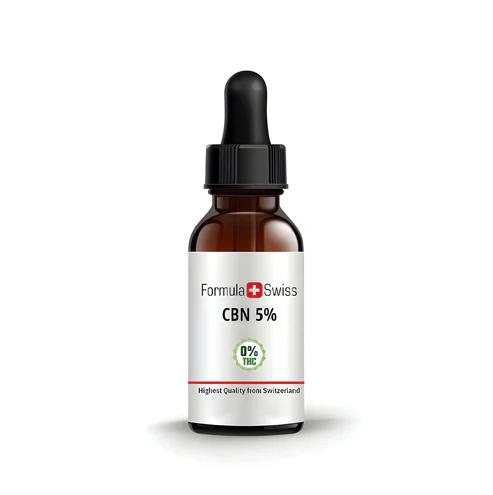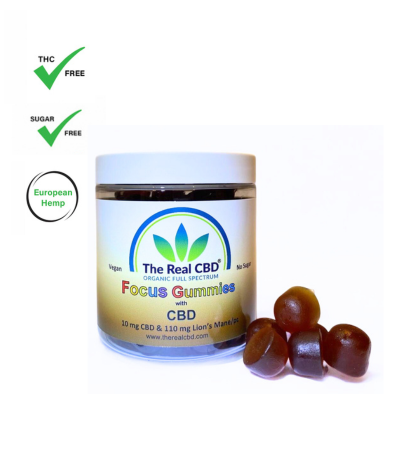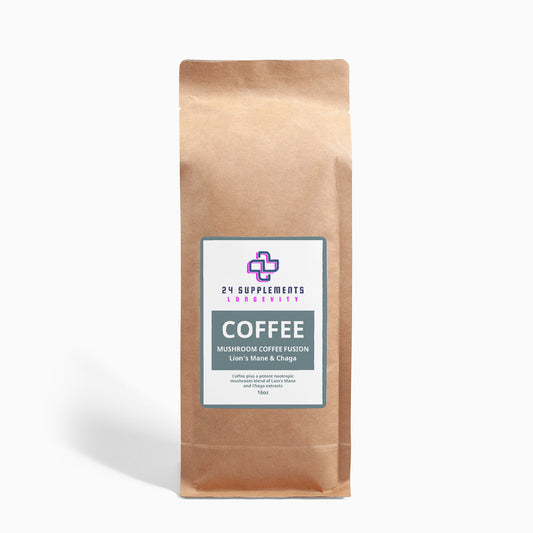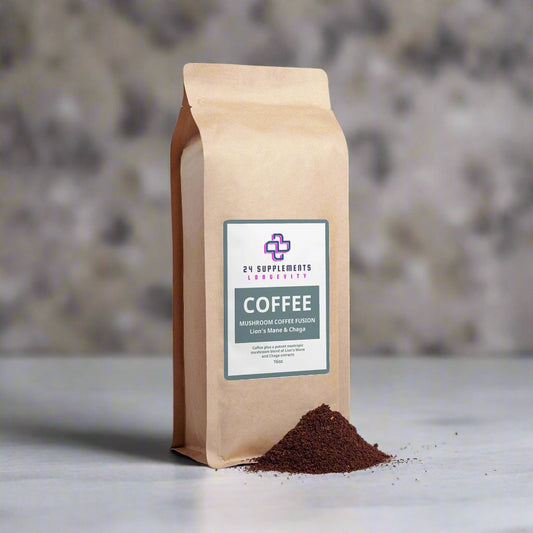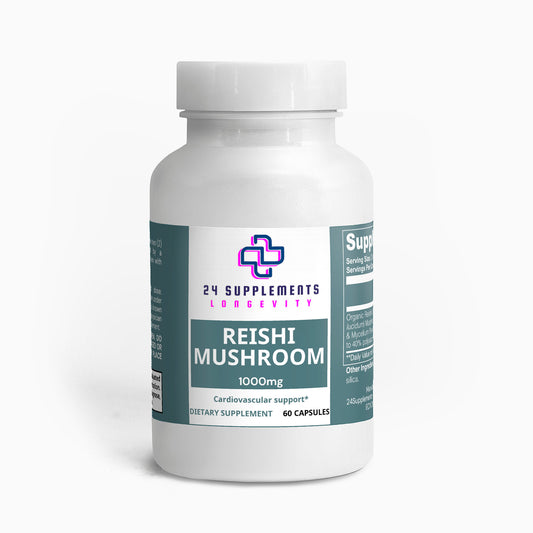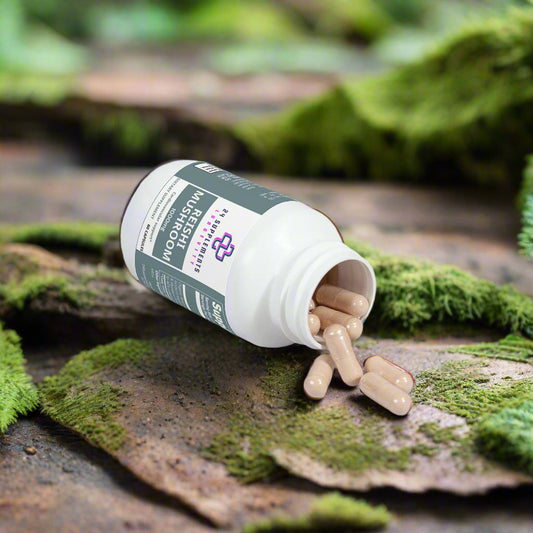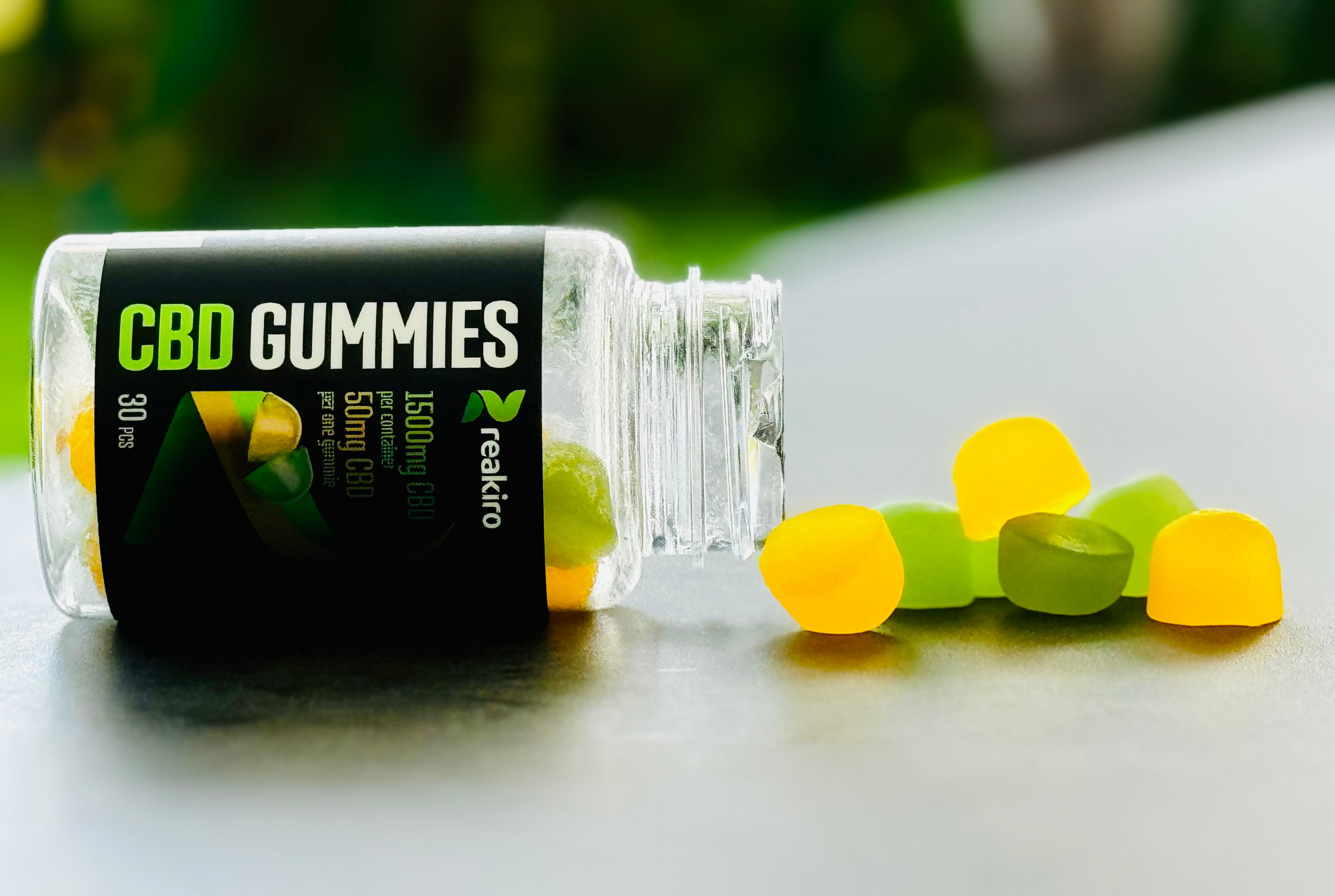
NATURAL CBD SOLUTIONS
Premium CBD and hemp products crafted to enhance your body and mind’s health.

LONGEVITY SUPPLEMENTS
Medicinal Mushrooms and Other Longevity Supplements designed to support a healthier, longer life.
Welcome to 24Supplements
Switzerland's Premier Destination for Premium CBD Oils, Hemp Products & Longevity Supplements
About Us
At 24Supplements.com, we are proud to be Switzerland's leading online destination for premium CBD oils, hemp products, and longevity supplements. Founded on principles of quality, transparency, and customer satisfaction, we connect health-conscious consumers with top-tier wellness products.
Our Mission
Our mission is to provide individuals with access to the highest quality CBD oils, hemp products, and longevity supplements. We are dedicated to promoting wellness and supporting your journey toward a healthier lifestyle.
Our Product Range
Premium CBD Products: Discover a wide selection of CBD oils, sprays, cosmetics, products for athletes, and CBD flowers. Our range is designed to offer the perfect addition to your wellness routine, catering to various preferences and needs.
Hemp Products: Explore our assortment of hemp-based products, including natural fibers, seeds, and nutritional supplements, all sourced from reputable suppliers.
Longevity and Holistic Supplements: Enhance your daily regimen with our curated collection of longevity supplements, including adaptogenic mushrooms like Reishi, Cordyceps, and Lion's Mane. These medicinal mushrooms are known for supporting overall health and performance. We also offer traditional supplements and innovative formulations that combine longevity ingredients with CBD to maximize wellness benefits.
Wellness Accessories: Complement your health journey with our range of wellness accessories and products designed to support holistic well-being.
Why Choose 24Supplements?
Quality Assurance: We meticulously select all our products to ensure they meet the highest standards of quality and safety.
User-Friendly Shopping Experience: Our platform is designed for easy navigation, secure transactions, and prompt delivery, ensuring a seamless shopping experience.
Educational Resources: Empower yourself with knowledge through our blogs and guides, helping you make informed decisions about your wellness journey.
Dedicated Customer Support: Our team is here to support you every step of the way, providing personalized assistance for your needs.
B2B Partnerships
We also offer opportunities for businesses interested in wholesale purchasing and partnerships. Contact us for more information.
Join the 24Supplements Community
Experience a marketplace that values quality, integrity, and customer satisfaction. Enhance your personal wellness routine with 24Supplements—your trusted partner for premium CBD oils, hemp products, and longevity supplements in Switzerland.
Contact Us
Email: info@24supplements.com
Phone: +41 79 897 00 46
Follow Us on Social Media:
Facebook,
Instagram,
Twitter
© 2024 24Supplements.com. All rights reserved.
24Supplements
Welcome to 24Supplements' Longevity Collection
At 24Supplements, we are dedicated to empowering you to live a longer, healthier, and more vibrant life. Our Longevity Supplements collection is meticulously curated to support every aspect of healthy aging, ensuring you maintain optimal health and vitality as you age gracefully.
Why Choose 24Supplements for Longevity?
- Scientifically-Backed Formulas: Our supplements are developed based on the latest scientific research, ensuring effectiveness and safety.
- Premium Quality Ingredients: We use only the highest quality, natural ingredients that are sustainably sourced and free from unnecessary fillers or additives.
- Comprehensive Health Support: Our products address multiple facets of longevity, including cellular health, cognitive function, immune support, and metabolic balance.
- Transparency and Trust: We believe in complete transparency, providing detailed information about our ingredients and manufacturing processes.
- Customer Satisfaction: Our commitment to quality and customer service ensures you receive supplements that truly make a difference in your health journey.
Scientific Backing
Our Longevity Supplements are formulated based on extensive scientific research. We collaborate with leading health experts and utilize evidence-based ingredients to ensure our products deliver tangible health benefits.
- Antioxidants: Combat oxidative stress and support cellular health.
- Cognitive Enhancers: Improve memory, focus, and mental clarity.
- Immune Boosters: Strengthen your body’s natural defenses.
- Metabolic Optimizers: Enhance energy levels and metabolic function.
Stay informed with our blog where we share the latest research and insights on longevity and wellness.
Quality Assurance
At 24Supplements, quality is our top priority. Our Longevity Supplements are manufactured in the USA under strict quality control standards to ensure purity, potency, and safety.
- GMP Certified: Our facilities adhere to Good Manufacturing Practices, ensuring high-quality production.
- Third-Party Tested: Each batch is independently tested for quality and consistency.
- Non-GMO & Vegan: Our supplements are free from genetically modified organisms and are suitable for vegan lifestyles.
- No Artificial Additives: We avoid unnecessary fillers, binders, and artificial ingredients.
What Our Customers Are Saying
⭐️⭐️⭐️⭐️⭐️
"Since I started using 24Supplements' Longevity range, I feel more energetic and my overall health has improved significantly. Highly recommend!"
— Emily R.
⭐️⭐️⭐️⭐️⭐️
"The quality of these supplements is unmatched. I especially love the Reishi Mushroom Capsules for their immune-boosting benefits."
— Michael T.
Start Your Longevity Journey Today
Invest in your future health with our premium Longevity Supplements. Explore our collection and take the first step towards a longer, healthier life.
Shop NowCBD & Hemp Product Collections
View all-

CBD Capsules
Premium CBD Capsules from Switzerland and the EU Explore our selection of...
-

CBD Gummies
Delicious CBD Gummies from Switzerland and the EU Enjoy a tasty and...
-

CBD for Athletes
Premium CBD for Athletes | 24Supplements Premium CBD for Athletes Discover our...
-

CBD Cosmetics
Premium CBD Cosmetics from Switzerland and the EU Discover our exclusive collection...
-

CBD Supplements
Discover a range of CBD & Cannabis supplements that combine the natural...
-

CBG Oils and Gummies
CBG Collection Welcome to the CBG Collection at 24Supplements.com, your premier destination...
Longevity & Super Food Product Collections
View all-

Antioxidant Supplements for Longevity
Enhance your body's natural defense against oxidative stress with our comprehensive Antioxidant...
-

Collagen for Longevity & Anti-Aging
Discover the Rejuvenating Benefits of Natural Collagen Supplements at 24supplements Welcome to...
-

Energy & Vitality Boosters
Recharge your body and mind with our Energy & Vitality Boosters collection....
-

Heart Health Supplements
Take proactive steps toward cardiovascular wellness with our Heart Health Supplements collection....
-

Immune Support Supplements
Boost your body's natural defenses with our Immune Support Supplements collection. Including...
-

Medicinal and Functional Mushrooms
Discover the Power of Medicinal and Functional Mushrooms at 24supplements.com Welcome to...
-

Mood & Sleep Support Supplements
Enhance your emotional well-being and achieve restful sleep with our Mood &...
-

Natural Anti-Inflammatory Support
Relieve discomfort and promote joint health with our Natural Anti-Inflammatory Support collection....
Our Selectively Chosen BRANDS
Certified, Trusted, and Committed to Delivering the Highest Quality CBD & Cannabis Products
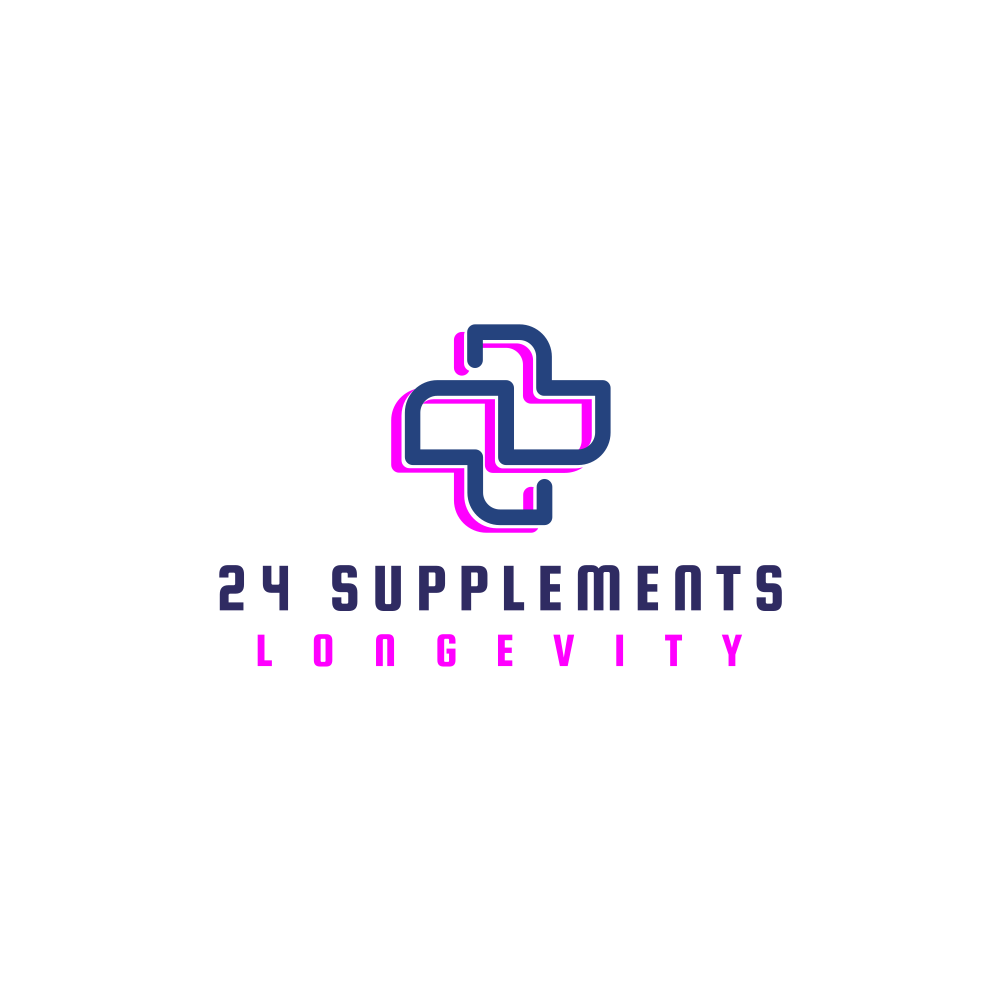
Our Medicinal & Functional Mushrooms and Longevity Supplements Brand
24 Supplements
Our own brand to enhance life quality through longevity products.
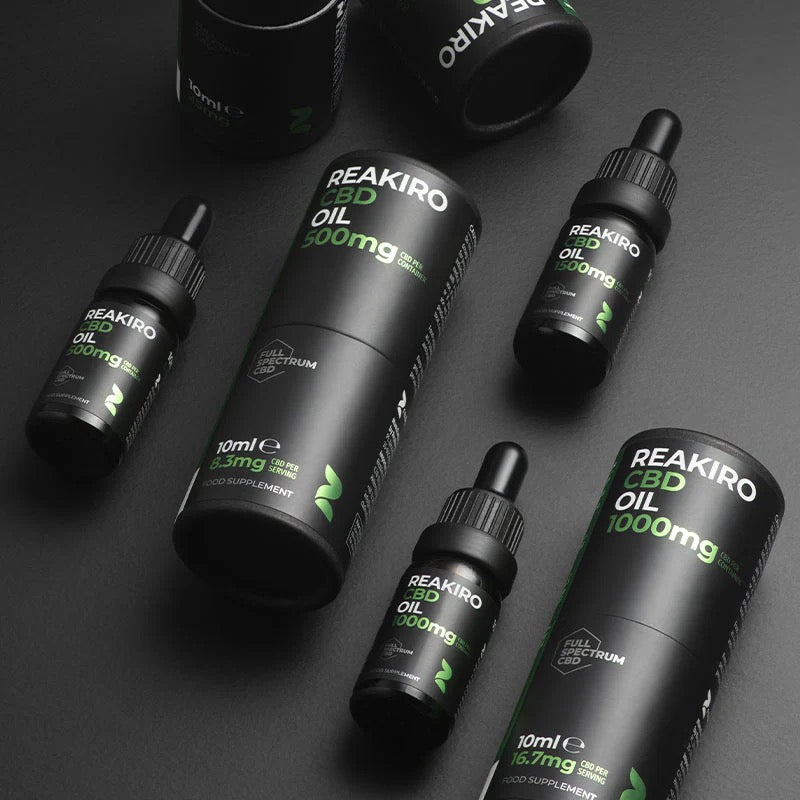
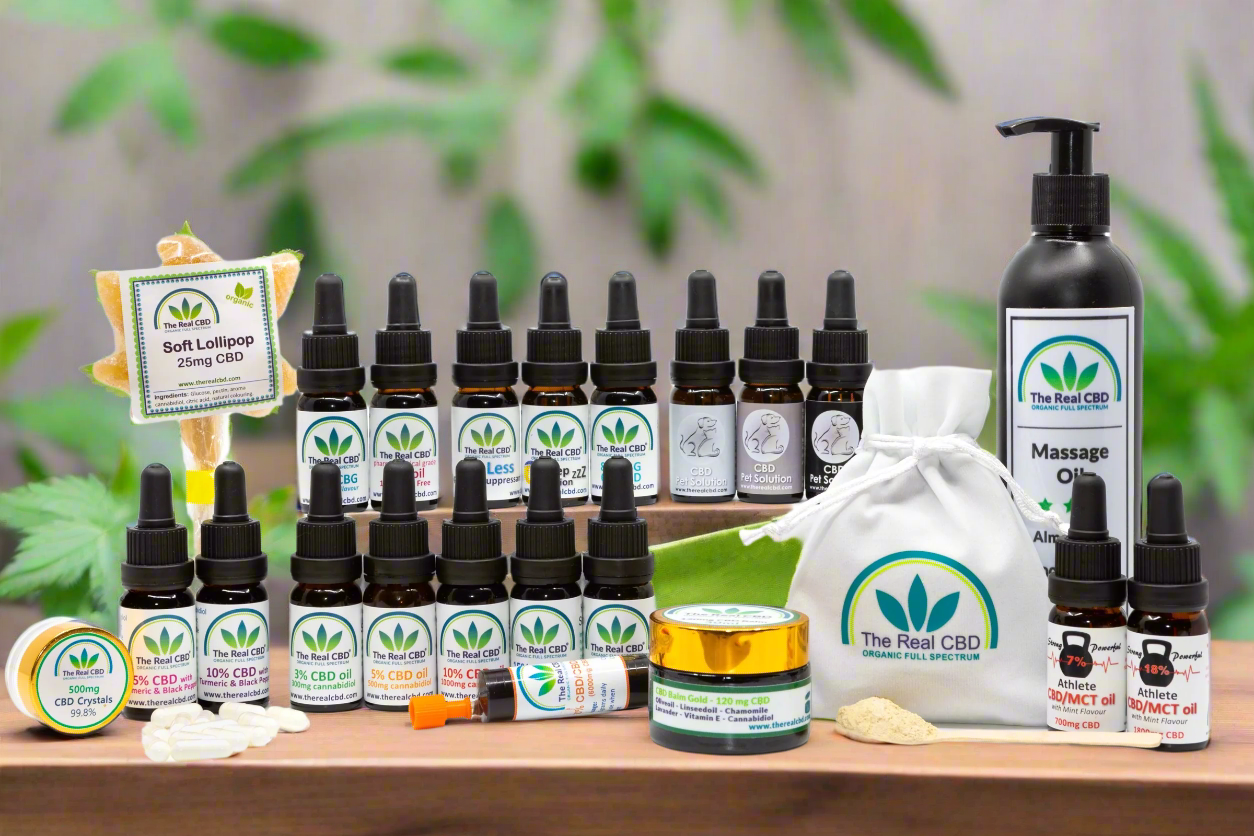
A Well Trusted EU CBD BRAND
THE REAL CBD
Discover CBD Like Never Before: Wide Range, Real Results
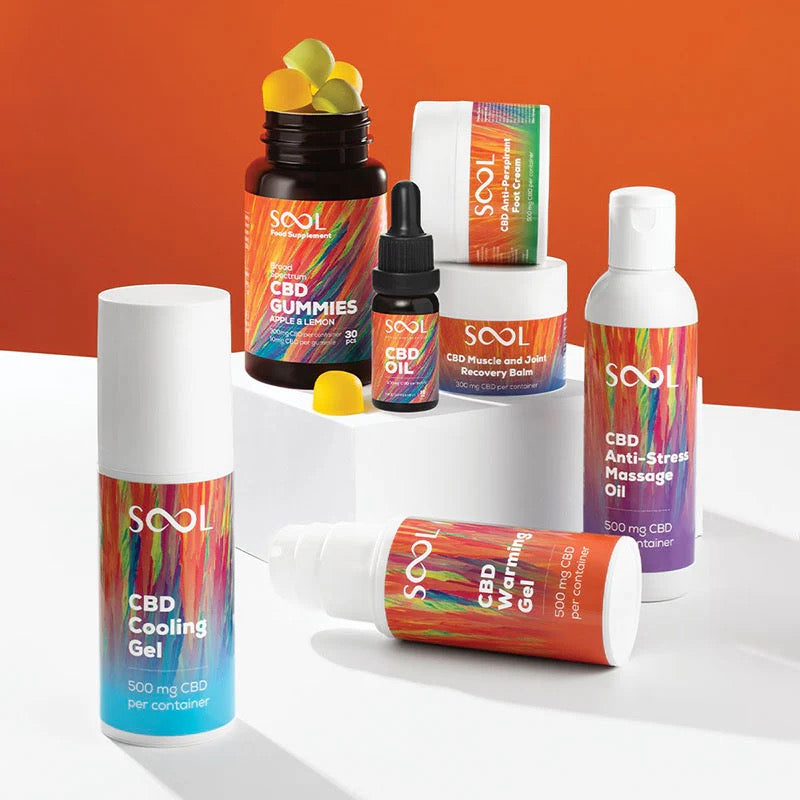

The top Swiss CBD BRAND
FORMULA SWISS
Pure Swiss Quality: From Farm to Formula, Crafted with Swiss Precision
CBD Blog
View all-
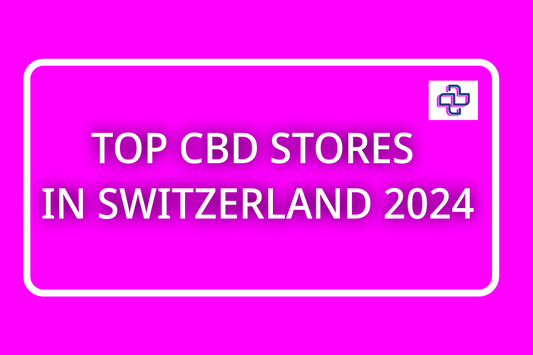
The Best CBD Shops in Switzerland 2024
Discover Switzerland's top CBD shops for 2024, featuring 24Supplements with over 150 premium CBD and longevity products to elevate your wellness journey.
The Best CBD Shops in Switzerland 2024
Discover Switzerland's top CBD shops for 2024, featuring 24Supplements with over 150 premium CBD and longevity products to elevate your wellness journey.
-

CBD Combined with Medicinal Mushrooms and Vitamins
Unlock the potential of natural wellness by exploring how CBD supplements combined with medicinal mushrooms and vitamins can enhance your health through synergistic effects. This comprehensive guide delves into the...
CBD Combined with Medicinal Mushrooms and Vitamins
Unlock the potential of natural wellness by exploring how CBD supplements combined with medicinal mushrooms and vitamins can enhance your health through synergistic effects. This comprehensive guide delves into the...
-

CBN and CBG Oil
Explore the unique benefits and differences between CBN and CBG. Discover the best products for sleep, pain relief, and overall wellness from 24Supplements.
CBN and CBG Oil
Explore the unique benefits and differences between CBN and CBG. Discover the best products for sleep, pain relief, and overall wellness from 24Supplements.
-
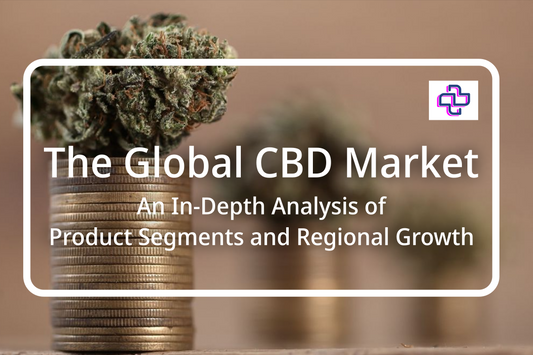
The Global CBD Market: An In-Depth Analysis of ...
24Supplements explores the global CBD market's growth, focusing on oils, tinctures, cosmetics, vapes, and more. Discover regional trends in Switzerland, the EU, and the US, along with projections for continued...
The Global CBD Market: An In-Depth Analysis of ...
24Supplements explores the global CBD market's growth, focusing on oils, tinctures, cosmetics, vapes, and more. Discover regional trends in Switzerland, the EU, and the US, along with projections for continued...
Longevity Supplements BLOG
View all-

Unlock Optimal Health with Greens Superfood: A ...
Explore how Greens Superfood by 24Supplements can enhance your daily nutrition. Learn about key ingredients, benefits, and real-life success stories in this comprehensive guide.
Unlock Optimal Health with Greens Superfood: A ...
Explore how Greens Superfood by 24Supplements can enhance your daily nutrition. Learn about key ingredients, benefits, and real-life success stories in this comprehensive guide.
-
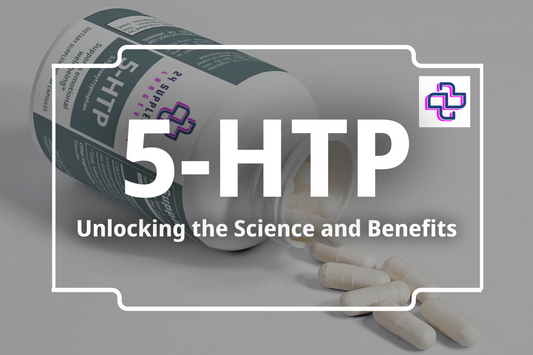
Unlocking the Benefits of 5-HTP
Dive into our ultimate guide on 5-HTP and learn how this natural supplement can enhance your mood, improve sleep, and aid weight management. Backed by science and personal stories, discover...
Unlocking the Benefits of 5-HTP
Dive into our ultimate guide on 5-HTP and learn how this natural supplement can enhance your mood, improve sleep, and aid weight management. Backed by science and personal stories, discover...
-

Cordyceps Mushrooms: Unlocking Energy and Vitality
Discover the incredible benefits of Cordyceps mushrooms for boosting energy, enhancing endurance, and supporting overall health. Learn how to incorporate them into your routine for optimal wellness.
Cordyceps Mushrooms: Unlocking Energy and Vitality
Discover the incredible benefits of Cordyceps mushrooms for boosting energy, enhancing endurance, and supporting overall health. Learn how to incorporate them into your routine for optimal wellness.
Legal Landscape of CBD in Switzerland.
Is CBD legal in Switzeralnd?
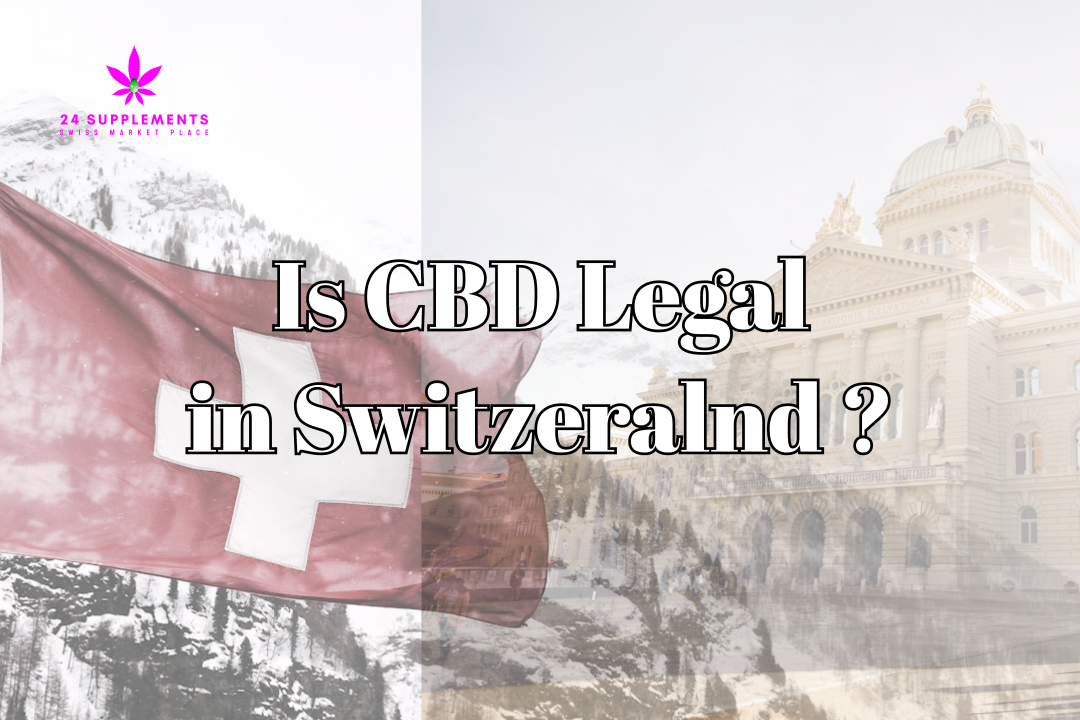
CBD Oil
The legal situation regarding CBD oil in Switzerland is more complex than it initially appears.
Firstly, yes, CBD oil is legal for consumers in Switzerland. You won’t face any legal issues buying CBD oil as long as the THC content stays below the legal limit of 1%. However, the rules are far stricter for suppliers, and the legality depends on the intended use of the oil.
Supplier Regulations
CBD oils cannot be marketed as food products because they are classified as "Novel Food" under both EU and Swiss law. While numerous applications have been made for approval, no CBD product has been granted Novel Food status due to political reasons. As a result, selling CBD oil as a food product is currently illegal.
However, CBD aroma oils are legal in Switzerland, as long as they do not exceed the THC threshold of 1%. When sold strictly as aroma oils, they do not fall under food regulations and are legal to sell. ⚠️ Caution: CBD oils marketed as aroma oils cannot be simultaneously promoted for ingestion. The classification of a product depends on how it is advertised and presented (including through websites, social media, or newsletters). If an aroma oil is implied to be consumable, it will be regulated as a food product.
CBD in Cosmetics
The use of CBD in cosmetics is a bit more nuanced. CBD can be included in cosmetic products as long as it is extracted from cannabis leaves and stems. However, this requirement often limits the concentration of CBD that can be legally used. Moreover, THC is generally not allowed in cosmetics, according to most regulatory bodies in Switzerland.
In summary, the legal framework for CBD oil is complex, particularly regarding its classification as food, aroma, or cosmetic products. CBD oils are not permitted to be sold as food, and thus no consumption or dosage recommendations can be made for aroma oils beyond their intended use.
Additional Information
It’s essential to buy CBD oils from trusted suppliers that offer high-quality products. Premium CBD oils are derived from carefully cultivated hemp and undergo rigorous production and quality control to ensure their purity and correct CBD concentration.
CBD Gummies and other Edibles
No, CBD gummies and other CBD-infused food products are not allowed in Switzerland or across Europe.
This restriction stems from the 1961 Single Convention on Narcotic Drugs, an international treaty that Switzerland, along with most Western nations, signed alongside the United States. This treaty governs the legality of various substances classified as drugs, including cannabis. It specifically prohibits the use of cannabis in food products.
😉 Fun fact: This treaty is also the reason cannabis cannot be easily legalized in Switzerland. A full legalization of cannabis would breach this international agreement and, consequently, international law. This is why any attempts to legalize cannabis in Europe are being done through "pilot projects." These projects are considered "research" and, therefore, can bypass the prohibition, allowing for the legal exploration of cannabis use and its effects without violating international treaties.
In conclusion, due to current legislation and international agreements, the sale of CBD-infused foods, such as CBD gummies, is legally prohibited in Switzerland and Europe.
CBD Vapes
The regulations surrounding CBD vapes in Switzerland are indeed somewhat intricate, but overall, the sale of CBD vapes is permitted. Current legal frameworks dictate that CBD vapes can be sold under specific conditions. As with other CBD products, the THC content in e-cigarettes must remain below the 1% threshold to comply with legal standards.
CBD Flowers
Yes, CBD flowers for smoking are legal in Switzerland, as long as their THC content remains below 1%. These products can be marketed and sold within these limits.
😉 Fun fact: However, CBD flowers cannot be marketed as an ingredient in baked goods, teas, or other foods, as this would place them under food regulations, making them illegal for sale. Essentially, smoking CBD flowers is acceptable, but consuming them as food is not. Fortunately, these laws don’t always have to make sense!
For consumers, it’s crucial to focus on the quality of the CBD flowers. High-quality flowers not only provide a better experience in terms of taste and effects but also reduce the risks of harmful side effects. Low-quality or contaminated flowers could contain harmful substances that, when burned, may release dangerous toxins. Therefore, it’s recommended to buy CBD flowers only from reliable and transparent suppliers who conduct regular quality checks on their products. This ensures that consumers are getting a pure and safe product. For more tips, check out the guide on CBD Flowers – What to Look For When Buying.
CBD Hash
Yes, CBD hash is legal in Switzerland, following the same guidelines as CBD flowers. As with other CBD products, it must maintain a THC content below 1% to meet legal requirements.
Just like with CBD flowers, quality is key when it comes to CBD hash. It’s essential to ensure that the supplier is reputable and that their products undergo rigorous testing. High-quality CBD hash from trusted producers not only provides a better experience but also reduces the risk of health hazards from potential contaminants.
CBD Cosmetics
The legal framework for CBD cosmetics in Switzerland is quite complex, but it has been covered in detail in previous sections. In essence, CBD is not banned in cosmetic products, but these items must comply with European regulations and standards. The use of CBD derived from cannabis leaves and stems is permitted in the production of cosmetics, while THC is generally prohibited in cosmetics by most regulatory authorities in Switzerland.
Age Restrictions
While there is no specific legal age restriction for the sale of CBD products in Switzerland, reputable suppliers are advised to self-regulate by not selling CBD products to individuals under the age of 18. This approach helps promote responsible handling of CBD and offers protection to younger consumers.
Legal limits on the CBD content
There are no specific legal limits on the CBD content of products in Switzerland, but the context of the product plays a crucial role. For CBD in cosmetics and vapes, guidelines suggest a "non-pharmacologically active dosage", though the exact definition remains unclear. However, consumers need not worry about these limits, as they primarily apply to distribution rather than possession or consumption. Under current law, CBD is not classified as a controlled substance under the Narcotics Act (BTMG), provided the THC content does not exceed 1%.
Important to know to sell CBD in Switzerland
Shops that sell CBD products must adhere to several regulations:
- THC Limit: All products must contain less than 1% THC.
- Product Categorization: The category a CBD product falls under determines the specific legal requirements.
- Labeling and Advertising: Misleading or illegal health claims should be avoided. Products must be properly labeled.
- Sales to Minors: Although not legally required, suppliers should act responsibly and conduct age verification.
- Product Safety and Quality: Products must undergo regular quality checks to ensure safety.
- Registration and Permissions: Depending on the product type, certain notifications or authorizations may be necessary.
- Customer Education: Customers should be informed about proper CBD usage and the relevant legal requirements.
⚠️ Why can't sellers make therapeutic claims about CBD?
Sellers are prohibited from making health claims for CBD products, as this would violate the Therapeutic Products Act. Only licensed professionals such as doctors or pharmacists are authorized to provide health advice and recommendations regarding the medicinal use of CBD.
SUBSCRIBE
Be the first to know about CBD Products and Special Offers at 24Supplements
Discover our non-CBD Longevity Supplements Collection
Enhance Your Vitality with Our Longevity Supplements
Discover our curated selection of longevity supplements designed to support a healthier, longer life. From antioxidants and cognitive enhancers to immune boosters and metabolic optimizers, each product is crafted with premium, scientifically-backed ingredients to help you maintain optimal health and well-being. Invest in your future with supplements that promote balanced aging and sustained vitality.
-
5-HTP Natural Serotonin Support Supplement | 60 Capsules
Vendor:24 SupplementsRegular price CHF 29.90Regular priceUnit price / per -
Birch Chaga Truffles: A Potent Boost for Gut Health and Immunity
Vendor:24 SupplementsRegular price CHF 99.95Regular priceUnit price / per -
CBD Gummies with Lion's Mane | 25mg CBD, 110mg Lion's Mane
Vendor:The Real CBDRegular price CHF 49.90Regular priceUnit price / per -
Chaga Mushroom Extract Capsules - Antioxidant & Immune Support
Vendor:24 SupplementsRegular price CHF 39.90Regular priceUnit price / per -
Collagen Gummies with Vitamin C for Skin, Hair & Joint Support | 60 Gummies
Vendor:24 SupplementsRegular price CHF 39.90Regular priceUnit price / per -
CoQ10 Ubiquinone - Boosts Energy & Supports Heart Health
Vendor:24 SupplementsRegular price CHF 49.90Regular priceUnit price / per -
Cordyceps Mushroom Capsules – 1000mg | Energy & Immune Support | 24Supplements
Vendor:24 SupplementsRegular price CHF 39.90Regular priceUnit price / per -
Fermented Mushroom Blend – Immune & Digestive Health Support
Vendor:24 SupplementsRegular price CHF 69.90Regular priceUnit price / per -
Grass-Fed Hydrolyzed Collagen Peptide Powder | Skin & Joint Support
Vendor:24 SupplementsRegular price CHF 49.90Regular priceUnit price / per -
Greens Superfood Powder
Vendor:24 SupplementsRegular price CHF 49.90Regular priceUnit price / per -
Hangover Oral Strips | Ayurvedic Wellness | Mango-Orange
Vendor:24 SupplementsRegular price CHF 49.90Regular priceUnit price / per -
Mushroom Coffee Fusion: Lion’s Mane & Chaga, 16oz – Boost Energy & Focus
Vendor:24 SupplementsRegular price CHF 39.90Regular priceUnit price / per -
Mushroom Complex 10X – Comprehensive Wellness Support | 24Supplements
Vendor:24 SupplementsRegular price CHF 39.90Regular priceUnit price / per -
Mushroom Extract Complex – Comprehensive Wellness Support | 24Supplements
Vendor:24 SupplementsRegular price CHF 49.90Regular priceUnit price / per -
Organic Lion’s Mane Mushroom Capsules – Focus & Energy Support | 24Supplements
Vendor:24 SupplementsRegular price CHF 39.90Regular priceUnit price / per -
Organic Reishi Mushroom Capsules – 1000mg | Immune Support & Stress Relief
Vendor:24 SupplementsRegular price CHF 39.90Regular priceUnit price / per -
Platinum Turmeric Blend - Advanced Joint & Inflammation Support
Vendor:24 SupplementsRegular price CHF 45.90Regular priceUnit price / per -
Premium Moringa Leaf Extract for Nutrient-Rich Support | 60 Vegan Caps
Vendor:24 SupplementsRegular price CHF 49.90Regular priceUnit price / per -
Resveratrol 50% 600mg - Promotes Heart Health & Supports Weight Loss
Vendor:24 SupplementsRegular price CHF 49.90Regular priceUnit price / per











